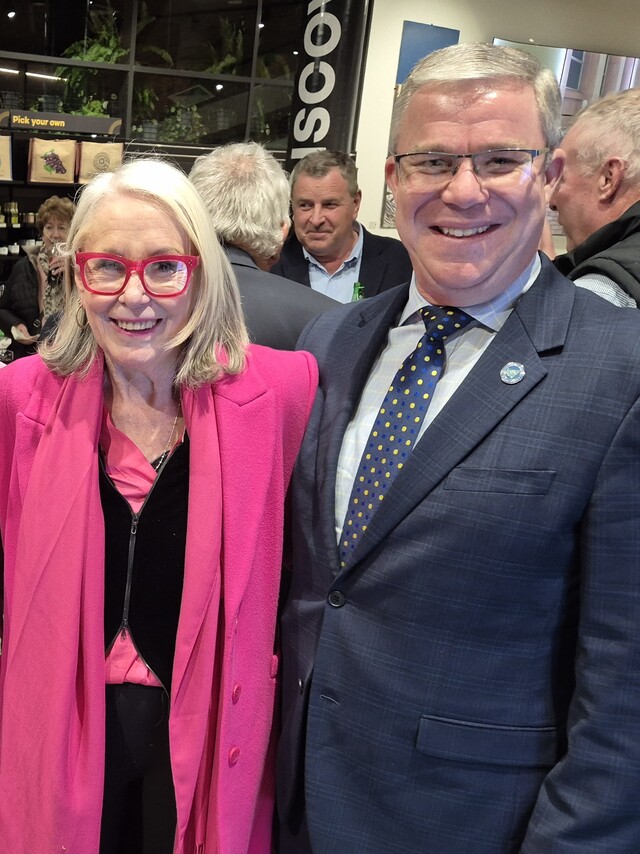Water is a major focus for Whittlesea Council. Its 2006 Sustainable Water Use Plan sets an ambitious goal to reduce relative potable water use by 25 per cent by 2015 and 50 per cent by 2030, based on 2001 usage.
To achieve this, a significant proportion of current and future sporting fields will need to be irrigated with sustainable, alternative water supplies. To this end, Council is actively involved in several regional and local stormwater and recycled water supply projects for sportsground irrigation. The stormwater harvesting schemes will result in Council becoming a supplier and manager of its own water resources.
Major alternative water supply projects
Recycled water scheme: Council is working with Yarra Valley Water to extend a pipeline from one of its water treatment plants to a number of sporting grounds and school ovals in the Epping North area. The project will provide Class A water to these sites for irrigation and will result in an annual saving of 33 megalitres of potable water.
It is intended to also construct a pipeline from Yarra Valley Water’s Class A holding tanks for irrigation of another six sporting grounds, and net an annual saving of 29 megalitres of potable water.
Water treatment ponds: Whittlesea is one of just a few councils to trial irrigation of a sporting ground with available stormwater. The stormwater from the Peter Hopper Lake in Mill Park is being pumped through a sand filter and UV lamp and is then used to irrigate the nearby Redleap Reserve in Mill Park.
Drought tolerant grasses are about to be planted on the ground and the stormwater will be used to help them establish and develop ready for play in future years.
Melbourne Wholesale Markets stormwater harvesting scheme: The new Melbourne Wholesale Markets is set to relocate to the City in 2011. Council is working with the Victorian Department of Primary Industries and private developers of two nearby residential developments to look at capturing water from the market site for use in irrigating sports grounds and parklands.
Aquifer recharge stormwater harvesting scheme: Whittlesea is exploring the potential of the technology of pumping up to 25 million litres of water underground for storage and reuse at a later date. Known as the aquifer recharge storage program, it is widely used overseas and allows for storage of large amounts of water without evaporation. The water will be stored 45 metres underground and will be used to irrigate future sporting recreational grounds in the Mernda Doreen growth area.
Coordinating major water projects
Water Taskforce: Bringing major water projects together and getting them off the ground is a difficult and complex task and the City of Whittlesea has developed an internal Water Taskforce to bring the projects to advanced planning stages. The taskforce includes staff from Council’s Strategic Planning, Engineering, Sustainability Planning and Parks and Gardens units and its representatives include the CEO, Directors, Managers and Officers.
Initiated in March 2007 to provide community leadership and departmental coordination to achieve the Sustainable Water Use Plans, the Taskforce now plays a pivotal role in getting many of these projects off the ground.
MAV Taskforce: Council is also a member of the Municipal Association of Victoria (MAV) water taskforce, which meets monthly. Formation of the group has helped to improve communication with Local Governments and local water authorities in regard to alternative water supplies, policy decisions and best practice frameworks.
Participation in Statewide water projects: Council’s reputation as a leader in water conservation has seen Whittlesea selected as one of just nine Victorian councils to develop guidelines for the use of non potable water for Local Government and civil construction activities. The guidelines will provide high level advice in relation to considering the appropriate reuse of potential alternative water supplies, such as treated effluent, industrial wastewater and stormwater.
Council has also been part of a partnership with the Environment Protection Authority and several Local Governments in developing an Industrial Code of Practice to encourage storm water quality protection and water conservation in industrial areas. The Code is in the final stage of development.
Other water conservation projects
Synthetic sports grounds: Council has built one synthetic sports field and has a further two planned (see story below).
Computerised watering system: Whittlesea is one of just a handful of councils in Victoria that has installed a hi-tech computer for the irrigation of sports grounds and parks and gardens. The computer controlled system communicates via a radio frequency to satellite stations at each of Council’s reserves. It measures air temperature, wind velocity and evaporation rates and can calculate how much water should be put on each reserve.
Water efficient fixtures and fittings: Council is continuing its five year plan to install water efficient fixtures and fittings at a number of community buildings. It plans to significantly reduce water consumption by collecting rainwater for toilet flushing, and installing water efficient toilets, taps and waterless urinals.
Future commitment: Council will continue to implement many state of the art practices to ensure that sports grounds, parks and gardens are not compromised because of ongoing drought. These measures are part of a long term plan designed to have a lasting effect, even after the drought has broken.







